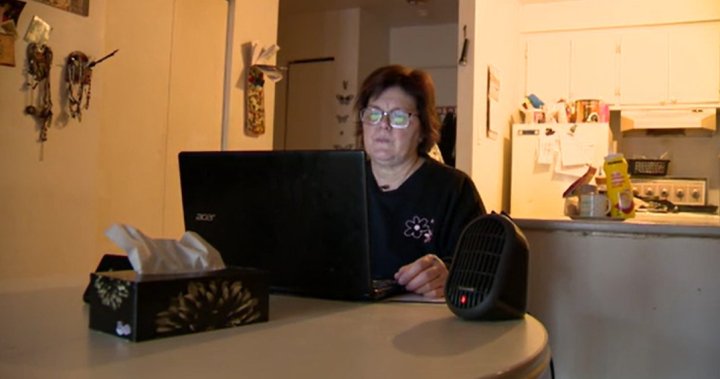Paragraph 1: The Plight of Tenants in a Montreal Apartment Building
Residents of an apartment building located in the Lachine borough of Montreal are facing a dire situation: they have been without heat for over a month during the harsh winter season. Despite numerous complaints and appeals to the property owner, their pleas have gone unanswered, leaving them to endure frigid living conditions. The tenants, frustrated and desperate for a resolution, are now seeking intervention from the borough authorities, hoping for a swift and effective solution to their heating crisis.
Paragraph 2: Tenants’ Struggle and the Borough’s Response
One of the tenants, Vera Nikolajew, shared her ordeal, describing the arduous measures she has been forced to take to cope with the lack of heating. Relying on a space heater and the oven for warmth, she expressed her exhaustion and frustration, highlighting the inconvenience and distress caused by the situation. Ms. Nikolajew painted a grim picture of daily life without proper heating, describing having to heat water for basic needs like showering using makeshift methods. Meanwhile, Lachine Borough Mayor Maja Vodanovic acknowledged the building owner’s history of non-compliance, revealing that fines imposed for previous issues have been ignored. She explained the complexities involved in addressing the current heating problem, emphasizing the limitations faced by the city in accessing private property. The borough is actively exploring alternative avenues to resolve the issue and provide relief to the affected tenants.
Paragraph 3: The Landlord’s Silence and Media’s Attempt to Reach Out
Adding to the tenants’ frustration is the complete lack of communication from the property owner. Attempts by Global News to contact the landlord were met with silence, further deepening the sense of abandonment felt by the residents. The landlord’s unresponsiveness raises concerns about their commitment to fulfilling their obligations as a property owner and their disregard for the well-being of their tenants. The absence of any response from the landlord leaves the tenants in a state of uncertainty and underscores the urgency of finding a solution to their predicament.
Paragraph 4: Legal and Ethical Implications of the Landlord’s Inaction
The landlord’s failure to provide adequate heating during the winter months raises significant legal and ethical questions. Landlords have a legal obligation to maintain habitable living conditions for their tenants, which includes providing essential services such as heating. Their inaction in this case constitutes a breach of their responsibilities and exposes them to potential legal consequences. Ethically, the landlord’s disregard for the well-being of their tenants, particularly during harsh weather conditions, is deeply concerning and highlights a lack of basic human decency. The tenants’ vulnerability and the landlord’s apparent indifference underscores the need for stronger tenant protection laws and enforcement mechanisms.
Paragraph 5: The Broader Context of Tenant Rights and Housing Issues
This incident in Montreal’s Lachine borough brings to light the wider issue of tenant rights and the challenges faced by renters in accessing safe and habitable housing. It highlights the power imbalance that often exists between landlords and tenants, leaving renters vulnerable to exploitation and neglect. The case underscores the importance of robust tenant protection legislation, effective enforcement mechanisms, and readily available resources for tenants seeking redress for landlord violations. It also calls for greater awareness and advocacy on tenant rights issues to ensure that renters are treated fairly and have access to safe and healthy living environments.
Paragraph 6: Potential Solutions and the Path Forward
Several potential solutions could be explored to address the heating crisis and prevent similar situations from occurring in the future. The borough could pursue legal action against the landlord to compel them to restore heating services and address other building issues. They could also explore options for emergency repairs and bill the landlord for the costs. In the long term, strengthening tenant protection laws and enforcement mechanisms would provide greater recourse for tenants facing similar issues. Increased funding for tenant advocacy groups and legal aid services would empower tenants to assert their rights and access the support they need. Furthermore, fostering greater public awareness of tenant rights and responsibilities can help to create a more balanced and equitable rental market.

